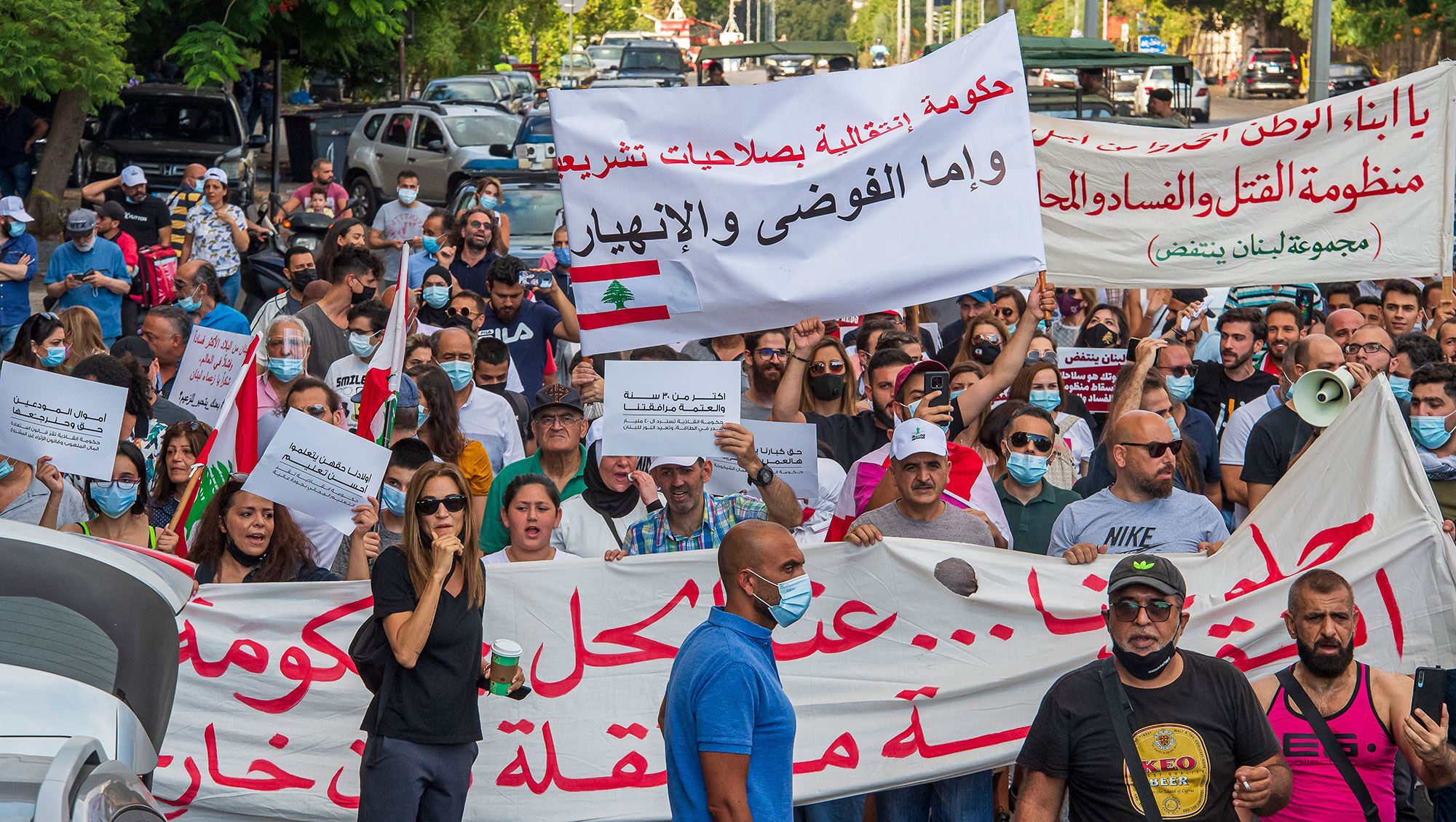“This time, we are fighting them till the end. All of them,” a Lebanese voter told Doha News.
The voter turnout amongst Lebanese expats in Qatar on Friday 6th May reached 66.38% — as hundreds of thousands of the diaspora across the world cast their votes in the parliamentary elections.
According to figures provided by the Lebanese Embassy in Qatar, 4,875 Lebanese voters out of the 7,344 registered have cast their votes at polls in Doha.
The ballots were stationed at the Lebanese School in Qatar.
The polls were open between 7 am until 10 pm and saw 3,009 votes by 6 pm, as reported by Lebanese news outlet Annahar. Lebanese citizens in Beirut will be voting on 15 May.
The global voter turnout for this year’s elections is estimated to be at least three times the figures of the last polls in 2018, according to Reuters.
“I have tried voting them out before but this time, it’s personal and we are angry. We want justice. We can no longer remain quiet and watch them lie to us, disrespect us and strip away the dignity and pride of the Lebanese people,” Rita Dahdah, a Lebanese woman working in Qatar told Doha News.
Demands for accountability and reform
The parliamentary elections are the first to take place since the 2019 uprising in Beirut that called for the toppling of the ruling elite. Protesters demanded reform in the country to end its multifaceted crisis.
Lebanon has been grappling with a dire economic crisis that worsened with the Covid-19 outbreak and the tragic Beirut Blast, which impacted more than half of the capital city.
Until now, families of the victims are calling for accountability and an adequate investigation into the tragedy.
The country’s currency has lost 90% of its value to the US dollar since 2019, with the population unable to access their savings from local banks. The World Bank has described the situation in Lebanon as one of the worst financial crises in modern times.
The people of Lebanon see the election as a crucial step towards reform that will possibly pave the way for saving the country from its multi-crises.
Qatar has previously offered to provide Lebanon with assistance once it forms a government.
Lina Bissani, who’s children are currently university students studying in Beirut, told Doha News that, “it is frustrating when I hear them [her children] saying we want to finish and go out of the country to search for a good job.”
Her main motivation behind voting is wanting a better future for the youth. “It is time to change and give the chance to new people and I am responsible towards my kids. We are still paying the choices of our families.”
A confessional system
Lebanon’s societal fabric is fragmented into Shia Muslims, Sunni Muslims, Druze, Maronites and other Christian sects.
In 1975, the various segments engaged in a bloody civil war that lasted for 15 years. The war has left a lingering impact on the country as various Lebanese officials continue to be caught up in corruption and scandals.
The parliamentary elections take place every four years and the candidates at the elections come from opposing political parties and sects. A number of seats are allocated for each sect.
Voters are to choose 128 ministers out of 718 candidates competing in the polls. The candidates are distributed across 15 electoral districts.
A total of 28 seats are open for the Sunni sect, 28 for Shia Muslims, eight for the Druze, 34 for the Maronites, 14 for the Orthodox, eight for the Catholics, five for the Armenians, and two seats for Alawites. One seat is open for minorities in the Christian community.
Varied preferences
Lebanese voters in Qatar had varied electoral preferences.
“I voted for change. My preferential vote went to Najat Saliba, a woman who is super educated, cultured, and has worked very hard. I believe in the power of women, and she resembles me. She is a true technocrat and is of a pure kind and soul,” said Dahdah.
Bissani, on the other hand, voted for Beirut Change’s Waddah El Sadek. “I want new minds, and I believe they will live up to their status and guarantee the change, they also don’t belong to any political party, they belong to Lebanon only.”
However, despite the glimmer of hope, some Lebanese nationals like Dahdah have casted doubt over the eligibility of democratic elections within what they believe is a corrupt system.
“Lebanon will not be able to move forward until the system changes, and I hope this is an issue that is seriously addressed and tackled in order to achieve a true technocratic regime with qualified experts who are not corrupt or biased or pushing for more segregation, or are selected because they’re inheriting seats.”







